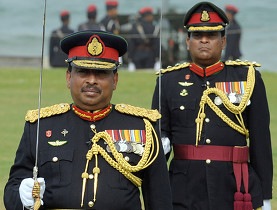by Simon Bradley, swissinfo.ch
 Changes to Swiss legislation offer new options for pursuing alleged war crime offenders but Switzerland still needs to properly apply the law, says a legal expert.
Changes to Swiss legislation offer new options for pursuing alleged war crime offenders but Switzerland still needs to properly apply the law, says a legal expert.
Benedict De Moerloose, a lawyer for the Swiss non-governmental organisation TRIAL, talks to swissinfo.ch about their new programme for fighting impunity in Switzerland and why the world is becoming a smaller place for people who commit atrocities.
Switzerland should also follow other countries’ lead in creating a federal unit responsible for investigating international war crimes, he says.
TRIAL fights against the impunity of perpetrators and instigators of the most serious international crimes and their accomplices.
swissinfo.ch: Why did you create a special programme to fight impunity in Switzerland this year?
Benedict De Moerloose: There have been a number of recent developments: the entry into force of new clauses in Swiss criminal law, global changes since the creation of the International Criminal Court and several national universal jurisdiction initiatives – countries deciding to act against serious violations of human rights outside their territory.
TRIAL felt it was the right time to take things to the next level and concentrate on cases in Switzerland.
swissinfo.ch: What are these recent legal changes?
B.D-M.: Switzerland ratified the Rome Statute in 2001 and has since adapted its legislation. Since January 1, 2011, crimes against humanity have been introduced into Swiss penal law. The definition of war crimes is now more precise and the field of application for the crime of genocide is wider.
Another important change is that the federal responsibility for bringing proceedings for such crimes has been transferred from the military justice system to the Federal Prosecutor’s Office.
The legal requirement that the accused has close ties to Switzerland – family or secondary residency – has also been dropped, so now anyone accused of serious war crimes who travels via Switzerland or plans to travel here can be subject to a criminal investigation.
The Swiss legal arsenal is now more significant so any political figures who are responsible for such crimes face a greater risk of facing justice.
swissinfo.ch: Are the federal authorities equipped for pursuing such cases?
B.D-M.: There is no federal unit dealing with this issue, that is responsible for investigating international war crimes. But in some countries like the Netherlands, Norway, Canada and Denmark, and soon in France, there are special units of prosecutors, police investigators and immigration experts who exchange information. And they get results; out of 24 recent sentences for international crimes, 18 were the fruit of investigations by special teams.
Switzerland should create such a unit. There are only two to three prosecutors working part time in the Federal Prosecutor’s Office who are responsible for war crimes. They work hard but it is not enough.
Switzerland should assign resources that match its ambition, as there is plenty of work here not just against individuals but also against a range of transnational companies based in Switzerland that are violating human rights outside the country.
swissinfo.ch: How easy is it for alleged rights offenders to still hide in Switzerland?
B.D-M.: What is certain is that in the past it was possible to live in Switzerland as a criminal without worrying. There is the famous case of the Rwanda genocide financier Félicien Kabuga, wanted by the International Criminal Tribunal for Rwanda, who had a Swiss visa in 1994 and was not prosecuted by Switzerland; they finally expelled him.
Since the sentence handed down by a Swiss military court in 2001 to Fulgence Niyonteze for participation in the Rwanda genocide, no one has been charged for international crimes in Switzerland.
Swiss law obliges federal asylum and prosecution bodies to communicate with each other; it should be automatic when there is suspicion of crimes. But this doesn’t happen systematically or when the prosecutors have the files in their hands they drop the cases.
We have this modern law but the authorities need to apply it properly.
swissinfo.ch: What is your reaction to the recent Jagath Dias decisions (see freeform)?
B.D-M.: They are very encouraging. They show that Switzerland is prepared to protect human rights; it’s a strong signal. But what is missing is a clear statement from the authorities on what will happen in the future, that alleged war criminals should no longer obtain a diplomatic post.
swissinfo.ch: Sri Lanka continues to oppose any international investigation into alleged war crimes during the end phase of the 2009 conflict. How do you see this evolving?
B.D-M.: From the Sri Lankan side it’s clear that nothing has been done. But if you look at other states and NGO actions, we have the feeling that things are moving and the fight against impunity in Sri Lanka is progressing.
Just one month ago a civil action was launched in the United States against the Sri Lankan Major General Shavendra Silva, who is the ambassador to the United Nations in New York and accused of atrocities.
And a few days ago another dossier was filed on Sri Lanka’s envoy to Australia, Thisara Samarasinghe, commander in the Sri Lankan navy during the conflict.
(For updates you can share with your friends, follow TNN on Facebook and Twitter )
